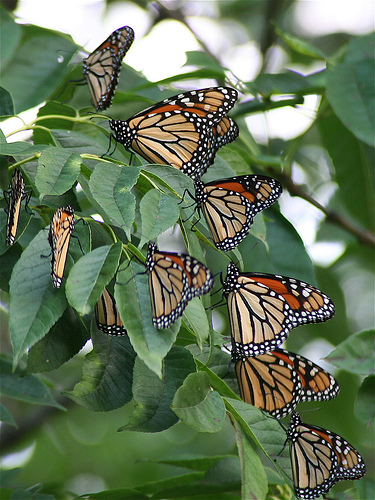Ground fog hovers out the back kitchen window, warm air over snow. We set out to walk before coffee. From the home of dear friends, we make our way down the dead-end road to the muddy grass path that leads us to the turn (right) down the rough-cleared way (duck under the fallen tree) to the fields owned by the nearby church and leased to the farmers. In a pair of borrowed rain boots and hooded sweatshirt (in late December), I feel a warm sweat rising.
Essays
Detroit’s Walls of Spite
Red Cup Season

It is Red Cup season! Under halogen lights, red metal tumblers gleam and pinken plastic to-go mugs. Swirled teacups shine like candy canes. Behind the café counter, whipped-cream ski hills top the menu of seasonal drinks with a flurry of diamonds and snowflakes. In sizes tall, grande, and venti, towers of patterned coffee cups are plucked by red-aproned baristas, like ornaments off a tree.
Winter Migration

It’s late afternoon on the beach in North Florida. It’s October, the end of a season, and the world is in motion. Monarchs cloud through the sunlight in orange swarms; blooms of jellyfish float along the shoreline; and schools of grouper leap in flustered succession, tails suspended above the ocean, bodies flapping. The air is just cold enough to make us duck our shoulders under water and lift our faces toward the sun, not shivering but not warm.
Writing in Place with Helen Hooper
By HELEN HOOPER
Sometimes I have to leave the house, get out in the world and write among other people. Not that I want anything to do with any of them. I just want to set up among them, the better to hunker down. I’m looking to be anonymous. I’m looking for a place where I can concentrate on my characters while ignoring people. A place where the rest of humanity provides a soothing backdrop, a therapeutic white noise.
Six Feet from the Sun

When you’re a carpenter’s son there are things you don’t tell your mother. The old asbestos siding Dad had you driving nails into, for instance. Or the ceiling fan he wired without first shutting off the power. Or how you close your eyes when you bring the round whirling blade of the chop saw down on a length of spouting so you won’t get any flecks of aluminum in your eyes. How it just seems safer that way.
Whole Cloth: A Weaver’s Daughter Looks at the Met’s Interwoven Globe Exhibit
When I see handmade cloth, with its uneven selvedges and irregularities, I feel a kinship. My mother was a weaver. I would come home from school and find my mother weaving, warping, or winding yarn. She wove on traditional four- or eight-harness looms, wooden frames the size of a grand piano. I grew up with the household sounds (and vocabulary) of the 1700s—the whizz of a shuttle, the thump of the beater, the rattle of heddles, and the shunk of harnesses.
My mother made suitings, dress fabrics, coverlets, upholstery, shawls, tablecloths—hundreds of yards. Now eighty-nine, she wove into her late seventies when the physical labor became too strenuous. But her creations will last forever, as handwoven cloth does. The oldest known textile fibers, twisted flaxen cords from the Caucasus, are 34,000 years old. I am pretty sure that 34,000 years from now archaeologists will be baffled by evidence of a mid-twentieth century handweaving culture in the Washington, D.C. suburbs.
Across Gymnasium Bridge
By SCOTT GEIGER
“We have the mind, body, and the mind/body all organizing this building,” offers architect Chris McVoy, metaphorically describing the Campbell Sports Center that opened this fall at Columbia University. The building is the outward expression of an athlete’s inner journey. In a short film, McVoy and his partner and mentor, Steven Holl, discuss their design intentions and the character of experience they’ve created.
Cosmopolis, Now
Well-Armed
A few months before I moved in, Serge was sitting in his house cleaning an AK-47 when it went off in his lap. Looking down, he found his hands were still intact, and he decided then and there to stop selling weapons. On the French mainland, he’d gone to school for aitiopathy, a form of physical therapy that seeks to provide treatment without pain. Down the line, he still looked forward to opening a private practice; gun running wasn’t worth the risk of losing any fingers. Eventually, Serge’s friends would tell me about his arsenal, though I never saw it myself. Each of them had seen a weapon at his house, and they realized, comparing notes, that the individual guns they’d seen were all different. In fact, Serge seemed to have a very large collection.






